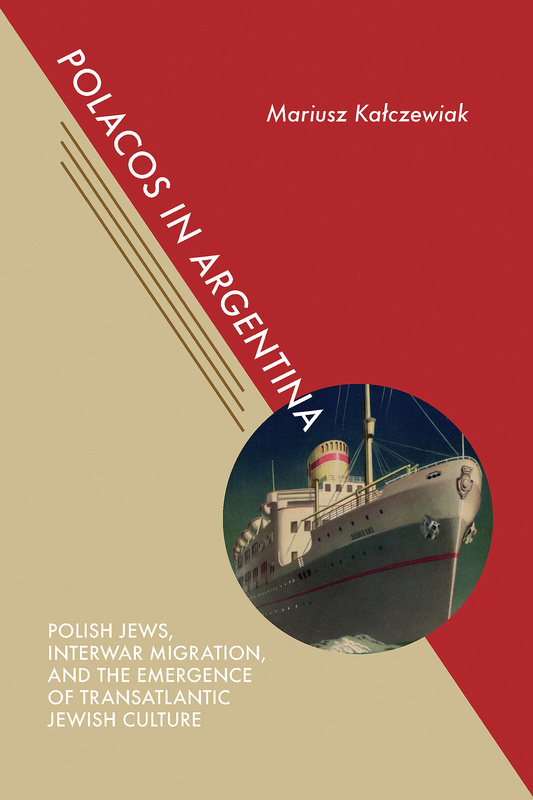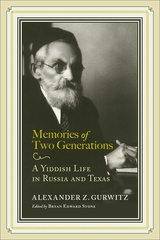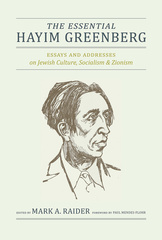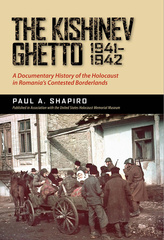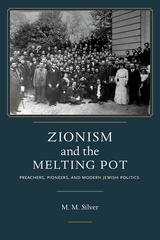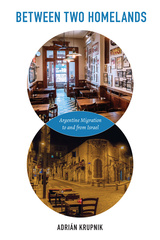Our shopping cart is currently down. To place an order, please contact our distributor, UTP Distribution, directly at utpbooks@utpress.utoronto.ca.
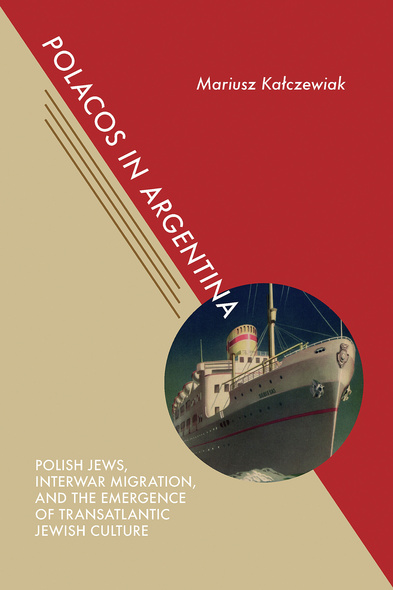
Polacos in Argentina
Polish Jews, Interwar Migration, and the Emergence of Transatlantic Jewish Culture
An examination of the social and cultural repercussions of Jewish emigration from Poland to Argentina in the 1920s and 1930s
Between the 1890s and 1930s, Argentina, following the United States and Palestine, became the main destination for Eastern European Ashkenazi Jews seeking safety, civil rights, and better economic prospects. In the period between 1918 and 1939, sixty thousand Polish Jews established new homes in Argentina. They formed a strong ethnic community that quickly embraced Argentine culture while still maintaining their unique Jewish-Polish character. This mass migration caused the transformation of cultural, social, and political milieus in both Poland and Argentina, forever shaping the cultural landscape of both lands.
In Polacos in Argentina: Polish Jews, Interwar Migration, and the Emergence of Transatlantic Jewish Culture, Mariusz Kałczewiak has constructed a multifaceted and in-depth narrative that sheds light on marginalized aspects of Jewish migration and enriches the dialogue between Latin American Jewish studies and Polish Jewish Studies. Based on archival research, Yiddish travelogues on Argentina, and the Yiddish and Spanish-language press, this study recreates a mosaic of entanglements that Jewish migration wove between Poland and Argentina.
Most studies on mass migration fail to acknowledge the role of the country of origin, but this innovative work approaches Jewish migration to Argentina as a continuous process that took place on both sides of the Atlantic. Taken as a whole, Polacos in Argentina enlightens the heterogeneous and complex issue of immigrant commitments, belongings, and expectations. Jewish emigration from Poland to Argentina serves as a case study of how ethnicity evolves among migrants and their children, and the dynamics that emerge between putting down roots in a new country and maintaining commitments to the country of origin.
Kałczewiak has gone far beyond writing an excellent study of transatlantic migrant cultures. Through pathbreaking, multi-archive, multilingual research Polacos in Argentina transforms our understanding of transnational Jewish and Yiddish cultures. As the best studies always do, this book transcends its specific topics to offer new insights into how scholars might understand the movement of peoples across multiple borders, and how long term migrations come to transform both destination societies and the places from which the migrants originally came.’
— Latin American Jewish Studies Association Book Award Committee
‘This is a pioneering and fascinating study of global Yiddish culture, beyond the borders of Eastern Europe, with special focus on its encounters with non-European cultures.’
—Raanan Rein, author of Argentina, Israel, and the Jews: Peron, The Eichmann Capture and After and Argentine Jews or Jewish Argentines?
After the United States and Palestine, Argentina drew the third largest share of Eastern European immigrants in the interwar period. Yet, Jewish Studies scholarship in English has scarcely mined the richness of Jewish life, especially Yiddish culture, there. Drawing on a diverse and novel array of printed and archival sources in above all Polish, Spanish, Hebrew and Yiddish, Kałczewiak makes an invaluable contribution to our understanding of the shaping of identity among ‘Polish’ Jews in Argentina and the image of Argentina among Jews in Poland in the first half of the twentieth century. He shows us that Jewish immigrants not only struck deep roots in their new country. They and their children also cultivated meaningful ties with Poland and constituted their (new) homeland as part of a global Yiddishland through a dynamic, multi-sided process that was continuously informed by and simultaneously informed Jewish identity in pre-Holocaust Poland.’
—Kalman Weiser, Silber Family Professor of Modern Jewish Studies, York University, Toronto
List of Illustrations
Acknowledgments
A Note on Translation, Spelling, and Transliteration
Introduction
1. Jewish Elites, Gentile Opinions, and the Argentine Dream
2. Between Hope and Fear: The Imageries of Argentina in Poland’s Yiddish Channels
3. Argentine Branch: Extending the Yiddishland to Latin America
4. Meeting the Gaucho and Searching for Indians: The Trajectories of Exoticization
5. Israelita Argentino or Argentiner Yid? Cultural Choices, National Belonging and the Weight of European Baggage
6. Being a “Good Polish Jew” in Buenos Aires: Landsmanshaftn and Jewish-Polish Ethnicity
7. Aktsyes, Protest-aktn, and Helping the Old Home: Argentine Children of Jewish Poland Respond to a Changing Europe
8. All Immigrant Jews Live with Their Soul in Poland? Debating the Tension between New and Old Home
Epilogue
Glossary
Notes
Selected Bibliography
Index

